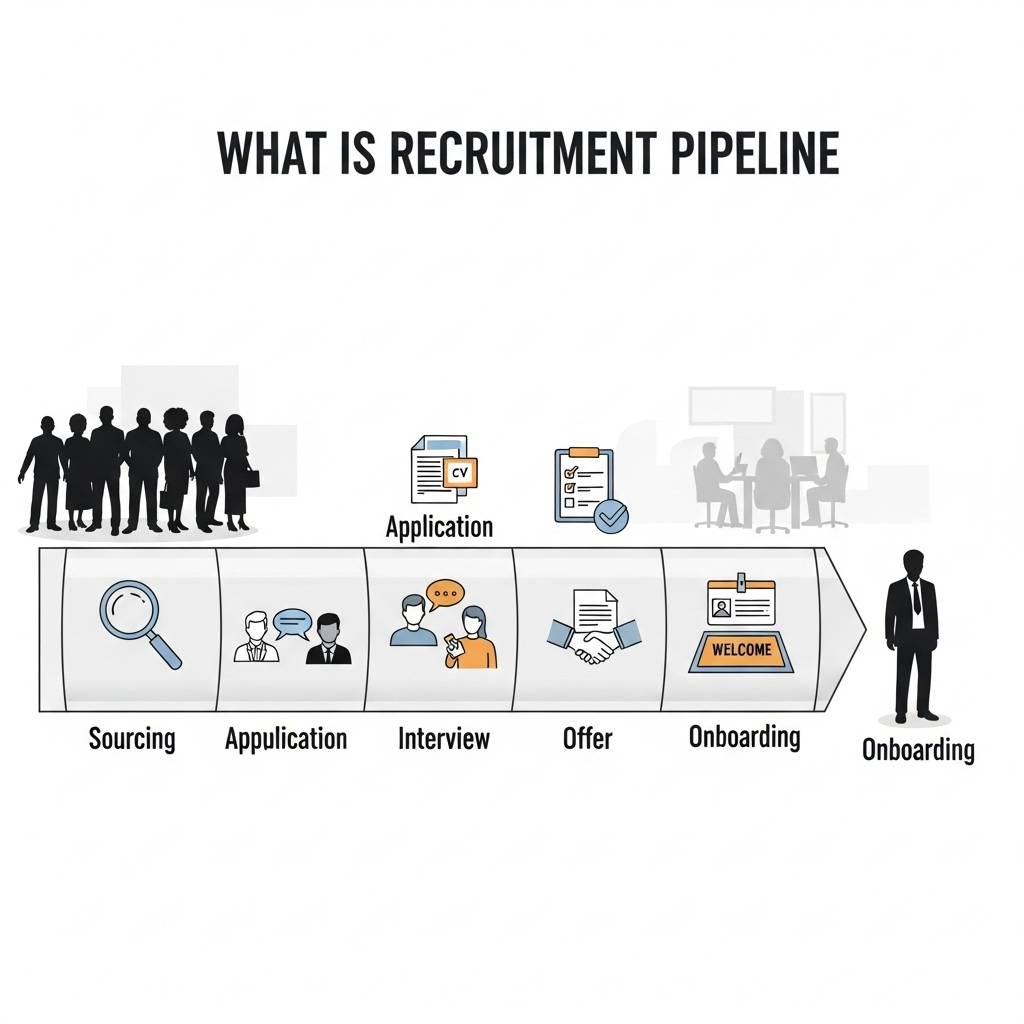Definition
A recruitment pipeline is a systematic approach to creating and maintaining a pool of potential candidates for future job openings within your organization. Think of it as a nurturing garden where you cultivate relationships with job seekers—some who are actively looking and others who may just be keeping an eye on opportunities. This proactive strategy ensures you always have a lineup of talent ready to step into roles as they become available.
Key Components
Building a robust recruitment pipeline involves several key elements that help streamline the hiring process and enhance your talent acquisition strategy. Here’s what you need to focus on:
- Candidate Sourcing: This is your starting point. Utilize platforms like LinkedIn, job boards, and your own company website to attract candidates. Being present where potential employees gather is crucial—think of it as casting a wide net.
- Engagement: Keep the conversation going! Regular updates through newsletters, personalized emails, or even social media interactions can make potential candidates feel valued and connected to your organization.
- Talent Nurturing: Just because someone isn’t ready to apply today doesn’t mean they won’t be interested tomorrow. Use nurturing tactics like sending relevant articles or company news to maintain that connection and keep your organization top of mind.
- Referral Programs: Encourage your current employees to refer friends or colleagues. Employees often have a good sense of who would fit the company culture well, and this can lead to high-quality candidates.
- Data Tracking: Use recruitment software to track interactions with candidates. This helps in understanding their interests and engagement levels, allowing you to tailor your communication effectively.
Importance in the Workplace
Why does a recruitment pipeline matter so much? Imagine you suddenly need to fill a critical role—without a pipeline, you’d be scrambling to find suitable candidates, which can lead to rushed decisions and poor hires. On the other hand, if you have a well-maintained pipeline, you can quickly reach out to engaged candidates who are already familiar with your company’s culture and values. This not only speeds up the hiring process but also enhances the quality of your hires, which can significantly reduce turnover rates. In a competitive job market, having a recruitment pipeline can be your secret weapon to attract top talent before your competitors even get a chance.
Best Practices
Implementing a successful recruitment pipeline doesn’t have to be overwhelming. Here are some actionable tips to get you started:
- Utilize Social Media: Regularly post job openings and company updates on platforms like LinkedIn and Twitter. Engage with followers by responding to comments and sharing insights about your workplace culture.
- Attend Networking Events: Participate in job fairs and industry conferences to meet potential candidates face-to-face. This personal touch can make a lasting impression and help you gather contacts for your pipeline.
- Personalize Communication: Send tailored messages rather than generic ones. For example, if a candidate expressed interest in a specific role, follow up with news about that department or share success stories from employees in similar positions.
- Implement a Candidate Relationship Management Tool: Consider using software designed to manage your interactions with candidates. This can help you keep track of your communication history and remind you of when to reach out.
- Evaluate and Adjust: Regularly assess your pipeline’s effectiveness. Are you attracting the right candidates? Are they engaging with your content? Use analytics to tweak your approach as needed.
Legal Considerations
When building a recruitment pipeline, it’s essential to be mindful of legal considerations surrounding candidate data. Always ensure compliance with data protection regulations, such as the General Data Protection Regulation (GDPR) in Europe or the California Consumer Privacy Act (CCPA) in the United States. Obtain consent from candidates before collecting or storing their personal information and be transparent about how you plan to use it. This not only builds trust but also protects your organization from potential legal repercussions.
Conclusion
Understanding the recruitment pipeline is crucial for any HR professional or hiring manager. By focusing on building and maintaining relationships with potential candidates, you can create a dynamic talent pool that not only saves time and resources but also enhances the quality of your hires. Remember, in today’s competitive job market, a solid recruitment pipeline is not just a nice-to-have—it’s a necessity for attracting and retaining top talent. So, roll up your sleeves and start cultivating those connections today!




